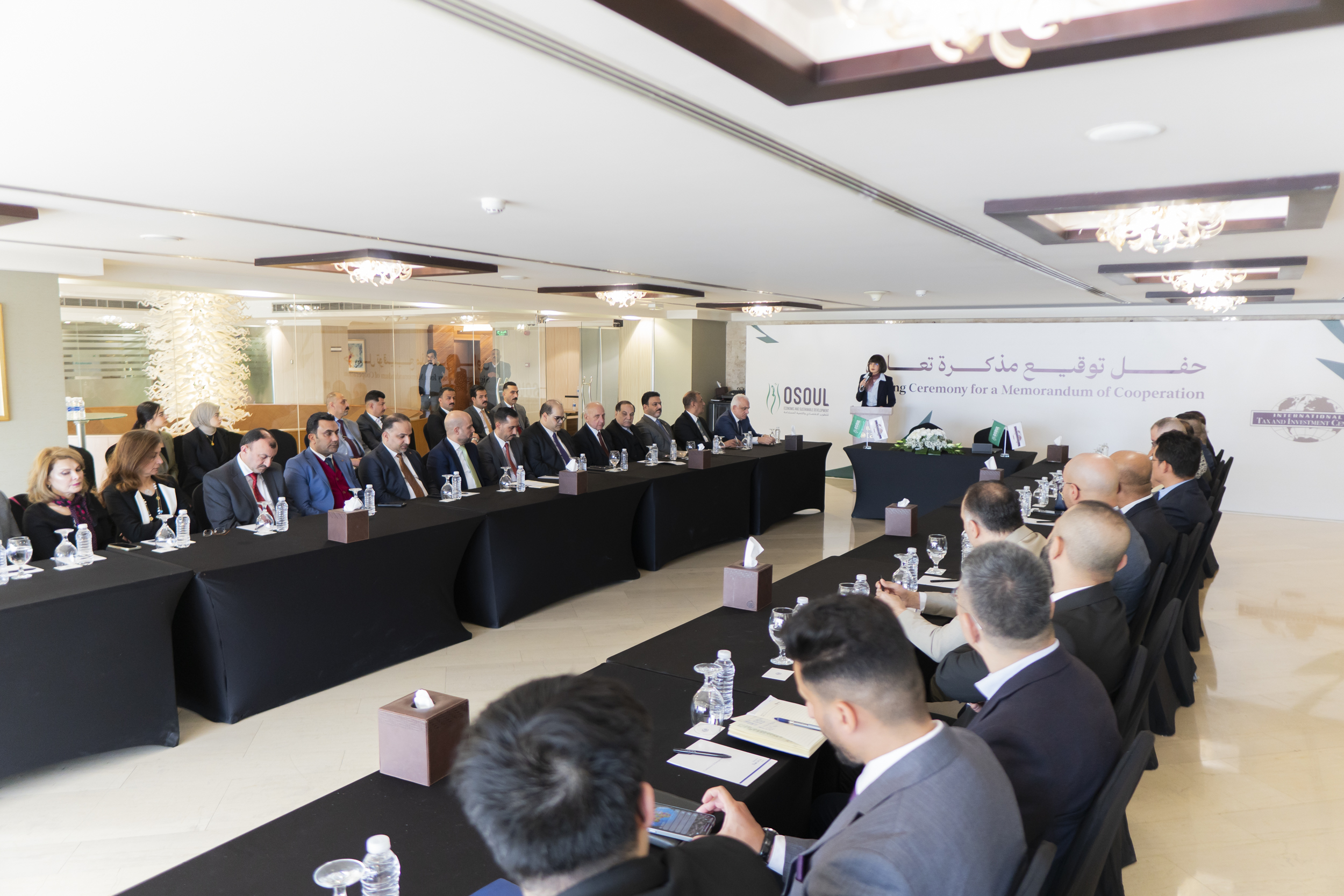Osoul Organization for Economic Development and Sustainable Growth and the International Center for Tax and Investment signed a strategic cooperation agreement in Washington to enhance the business environment in Iraq. The ceremony was attended by government representatives, economists, businessmen, global companies, the international community, and diplomatic missions. This step aims to support economic reforms and remove obstacles to foreign investment.
The agreement aligns with Iraq’s efforts to diversify revenues following the recent successful tax reforms, which increased non-oil revenues by 22% to reach 3.7 trillion Iraqi dinars (approximately 2.8 billion USD), with expectations of further growth in 2024, according to official data.
Key Pillars of the Agreement:
- Providing an updated guide to government decisions to help investors better understand economic directions.
- Monitoring challenges hindering capital flows and working with relevant authorities to find solutions.
- Designing short- and long-term strategic plans to develop tax and investment legislations.
- Bringing in international expertise to improve the efficiency of economic policies and their implementation mechanisms.
Stimulating Foreign Investment:
Representatives of both parties affirmed that the partnership will help eliminate bureaucratic barriers, increase transparency, and boost investor confidence, which could accelerate capital inflows and stimulate private sector growth. The agreement also coincides with the government’s acceleration in approving a new tax law and expanding digitalization in government institutions to reduce administrative complexities.
Digital Transformation and Legislative Reform:
Experts noted that the proposed legislative amendments, including the new tax law soon to be submitted to parliament, will strengthen the business environment alongside digital transformation projects aimed at improving the efficiency of government services.
Participants described the agreement as a “pivotal step” to support efforts in diversifying the economy, reducing dependence on oil, and creating sustainable investment opportunities within the framework of the National Vision 2030. This highlights the vital role of civil society organizations in promoting economic development and growth in the country.

